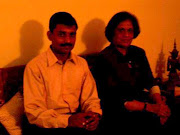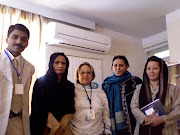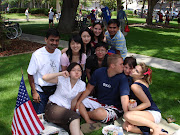“On 20 December 2005, upon the recommendations of the Secretary-General and his high level panel, the Security Council and the General Assembly ended a long phase of intergovernmental negotiations by adopting, by consensus, joint resolutions 1645 and 60/180 establishing a new UN Peacebuilding Commission. The Commission was tasked with addressing a critical gap within the UN and global system by providing a coordinated, coherent and integrated approach to post-conflict peacebuilding and facilitating dialogue amongst key actors. The Commission's 31 members were selected and it opened in June 2006, at which time the members elected a chair (Angola) and two vice-chairs (Norway and El Salvador). A Peacebuilding Fund and Peacebuilding Support Office also have been launched to complement and support the work of the Commission. The PBC has held two rounds of "country-specific meetings" (on Sierra Leone and Burundi), and both countries have been recommended for support from the Fund. Civil society involvement in the PBC has been possible on an ad-hoc basis; formal mechanisms for civil society input have yet to be established.” http://www.un.org/peace/peacebuilding/
Contrary to popular perception, since the end of the Cold War, there has been a decline in the number of civil wars raging worldwide. This is primarily due to the ending of many existing wars through negotiated settlements.Yet, a startling and now oft-cited statistic paints a bleaker picture: over the same period, almost fifty percent of peace agreements have collapsed within five years, sending countries spiraling back into conflict.
A recent study concluded that countries that played host to post-conflict UN field missions since1988 have been just as likely to revert to war as countries where the UN had no presence. These statistics indicate that the opportunities presented by peace agreements are not being realized. When insufficient attention is paid to the needs of societies emerging from conflict, the consequences are severe for all concerned. The societies themselves risk poverty, population displacement, a reversal of development gains and renewed violence, sometimes at levels worse than the prior phase of war. If only two peace agreements of the 1990s – the 1991 Bicesse Agreement for Angola and the 1993 Arusha Accords for Rwanda – had been successfully implemented, some two million lives would have been saved. The effects on neighboring states can be severe as well, from refugee and arms flows, to long-term economic costs.
For the international community as a whole, weak post-war states can threaten global security by serving as attractive milieus for terrorists and transnational crime. Clearly, there is a collective stake in improving this record. The current international response in the aftermath of civil war suffers from several persistent weaknesses. Some of these are problems of commitment. Too often, there is alack of sustained political attention to post-conflict countries: after peace agreements are signed, or after a peacekeeping mission draws down, countries cease to attract the attention of the UN Security Council and donor governments. Related to this, there is difficulty in securing sustained and predictable financing for peacebuilding activities, which often occupy a grey area between peacekeeping and development. In particular, there is a lack of early funding, as donors are slow to mobilize, and there are gaps in funding for activities that donors consider sensitive, such as those linked to political reform or the country’s security architecture. Even when sufficient funds are pledged for peacebuilding, funding flows may be inconsistent and unpredictable, and recipient governments may be forced to navigate conflicting donor demands and priorities. An additional set of problems relates to the poor coordination of the international community in dealing with post-conflict environments.
The UN system is itself difficult to coordinate, and lacks agreed goals to which the entire system can work. There is a disconnect between perceptions in the capitals of member states and UN country teams in the field, which exacerbates the problems of political and financial support for even the strongest field operations. But the bigger picture involves a wider range of actors: the UN, the international financial institutions (IFIs), regional organizations, bilateral donors, non-governmental organizations (NGOs) and, most importantly, the government and civil society in the country in question. These different actors often lack a shared strategic framework that outlines priorities, coordinates roles, and sequences activities to guide their operations.
In response to the resource shortfalls and organizational weaknesses of the international community in peacebuilding, the UN High-level Panel on Threats, Challenges and Change proposed the establishment of a Peacebuilding Commission (PBC) as a new intergovernmental body at the United Nations. The PBC will be responsible for addressing a critical gap within the UN and global system by providing a coordinated, coherent and integrated approach to post-conflict peacebuilding and facilitating dialogue amongst key actors. This proposal was strongly promoted by UN Secretary-General Kofi Annan and agreed by Member States at the September 2005 UN summit. In December 2005, the United Nations General Assembly (GA) and Security Council (UNSC) passed corresponding resolutions to establish the new organ as an intergovernmental advisory body, as well as a Peacebuilding Support Office, which will be housed in the UN Secretariat and will serve as a focal point for UN peacebuilding efforts, and a multi-year standing Peacebuilding Fund.
The PBC will be composed of a 31-member Organizational Committee, as well as country-specific configurations to address specific country cases on the PBC’s agenda. Membership for the Organizational Committee will comprise seven Member States selected from the UNSC, seven from the Economic and Social Council (ECOSC), seven from the GA, and five each from a list of the ten largest troop contributors and financial donors. The Secretary-General and IFIs will be invited to participate in all meetings of the Organizational Committee. (Elections of the 31 members were completed on 16 May 2006and a full list may be found on the last page of this paper.) The country-specific configurations will include the country itself and, where relevant, neighboring states, regional and sub-regional organizations, financial, troop and civilian police contributors, the senior UN representative in the field and regional or international financial institutions. The PBC's agenda will be established by the Organizational Committee on the basis of requests for advice from the Security Council, ECOSOC or the GA in specific situations, member states on the verge of lapsing or relapsing into conflict in cases in which the Security Council is not already seized, and the Secretary-General.
Second is to focus attention on there construction and institution-building efforts necessary for recovery, bridging the gap between the immediate post-conflict phase and sustainable development. Third is to provide recommendations and information to improve the coordination of all relevant actors within and outside the UN. The bulk of the PBC’s substantive work will be done on country-specific cases, and it is expected that the first case will be selected soon after the PBC’s inaugural meeting in late June 2006. Fourth, although the international community has a vital role to play, sustainability in peacebuilding ultimately relies on the work done by national governments and societies. Armed with the most rigorous analysis and best intentions, international actors have not succeeded where they have attempted to bypass national ownership or fail to understand local contexts. The key to a successful transition and sustainable results is early engagement with the functioning of the state, such that strategies are rooted in a shared compact between the society and the international community.
There is hope the PBC will provide further tools, guidance and resource mobilization and will actively engage allwho can contribute at the regional and sub-regional levels. However, although theresolutions establishing the PBC explicitly mention the involvement of regional and sub-regional actors in the country-specific committees, it is still not clear what form such involvement will take.
Contrary to popular perception, since the end of the Cold War, there has been a decline in the number of civil wars raging worldwide. This is primarily due to the ending of many existing wars through negotiated settlements.Yet, a startling and now oft-cited statistic paints a bleaker picture: over the same period, almost fifty percent of peace agreements have collapsed within five years, sending countries spiraling back into conflict.
A recent study concluded that countries that played host to post-conflict UN field missions since1988 have been just as likely to revert to war as countries where the UN had no presence. These statistics indicate that the opportunities presented by peace agreements are not being realized. When insufficient attention is paid to the needs of societies emerging from conflict, the consequences are severe for all concerned. The societies themselves risk poverty, population displacement, a reversal of development gains and renewed violence, sometimes at levels worse than the prior phase of war. If only two peace agreements of the 1990s – the 1991 Bicesse Agreement for Angola and the 1993 Arusha Accords for Rwanda – had been successfully implemented, some two million lives would have been saved. The effects on neighboring states can be severe as well, from refugee and arms flows, to long-term economic costs.
For the international community as a whole, weak post-war states can threaten global security by serving as attractive milieus for terrorists and transnational crime. Clearly, there is a collective stake in improving this record. The current international response in the aftermath of civil war suffers from several persistent weaknesses. Some of these are problems of commitment. Too often, there is alack of sustained political attention to post-conflict countries: after peace agreements are signed, or after a peacekeeping mission draws down, countries cease to attract the attention of the UN Security Council and donor governments. Related to this, there is difficulty in securing sustained and predictable financing for peacebuilding activities, which often occupy a grey area between peacekeeping and development. In particular, there is a lack of early funding, as donors are slow to mobilize, and there are gaps in funding for activities that donors consider sensitive, such as those linked to political reform or the country’s security architecture. Even when sufficient funds are pledged for peacebuilding, funding flows may be inconsistent and unpredictable, and recipient governments may be forced to navigate conflicting donor demands and priorities. An additional set of problems relates to the poor coordination of the international community in dealing with post-conflict environments.
The UN system is itself difficult to coordinate, and lacks agreed goals to which the entire system can work. There is a disconnect between perceptions in the capitals of member states and UN country teams in the field, which exacerbates the problems of political and financial support for even the strongest field operations. But the bigger picture involves a wider range of actors: the UN, the international financial institutions (IFIs), regional organizations, bilateral donors, non-governmental organizations (NGOs) and, most importantly, the government and civil society in the country in question. These different actors often lack a shared strategic framework that outlines priorities, coordinates roles, and sequences activities to guide their operations.
In response to the resource shortfalls and organizational weaknesses of the international community in peacebuilding, the UN High-level Panel on Threats, Challenges and Change proposed the establishment of a Peacebuilding Commission (PBC) as a new intergovernmental body at the United Nations. The PBC will be responsible for addressing a critical gap within the UN and global system by providing a coordinated, coherent and integrated approach to post-conflict peacebuilding and facilitating dialogue amongst key actors. This proposal was strongly promoted by UN Secretary-General Kofi Annan and agreed by Member States at the September 2005 UN summit. In December 2005, the United Nations General Assembly (GA) and Security Council (UNSC) passed corresponding resolutions to establish the new organ as an intergovernmental advisory body, as well as a Peacebuilding Support Office, which will be housed in the UN Secretariat and will serve as a focal point for UN peacebuilding efforts, and a multi-year standing Peacebuilding Fund.
The PBC will be composed of a 31-member Organizational Committee, as well as country-specific configurations to address specific country cases on the PBC’s agenda. Membership for the Organizational Committee will comprise seven Member States selected from the UNSC, seven from the Economic and Social Council (ECOSC), seven from the GA, and five each from a list of the ten largest troop contributors and financial donors. The Secretary-General and IFIs will be invited to participate in all meetings of the Organizational Committee. (Elections of the 31 members were completed on 16 May 2006and a full list may be found on the last page of this paper.) The country-specific configurations will include the country itself and, where relevant, neighboring states, regional and sub-regional organizations, financial, troop and civilian police contributors, the senior UN representative in the field and regional or international financial institutions. The PBC's agenda will be established by the Organizational Committee on the basis of requests for advice from the Security Council, ECOSOC or the GA in specific situations, member states on the verge of lapsing or relapsing into conflict in cases in which the Security Council is not already seized, and the Secretary-General.
Second is to focus attention on there construction and institution-building efforts necessary for recovery, bridging the gap between the immediate post-conflict phase and sustainable development. Third is to provide recommendations and information to improve the coordination of all relevant actors within and outside the UN. The bulk of the PBC’s substantive work will be done on country-specific cases, and it is expected that the first case will be selected soon after the PBC’s inaugural meeting in late June 2006. Fourth, although the international community has a vital role to play, sustainability in peacebuilding ultimately relies on the work done by national governments and societies. Armed with the most rigorous analysis and best intentions, international actors have not succeeded where they have attempted to bypass national ownership or fail to understand local contexts. The key to a successful transition and sustainable results is early engagement with the functioning of the state, such that strategies are rooted in a shared compact between the society and the international community.
There is hope the PBC will provide further tools, guidance and resource mobilization and will actively engage allwho can contribute at the regional and sub-regional levels. However, although theresolutions establishing the PBC explicitly mention the involvement of regional and sub-regional actors in the country-specific committees, it is still not clear what form such involvement will take.












No comments:
Post a Comment